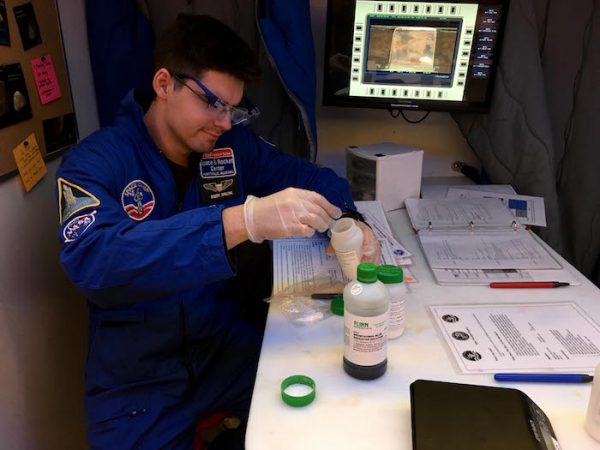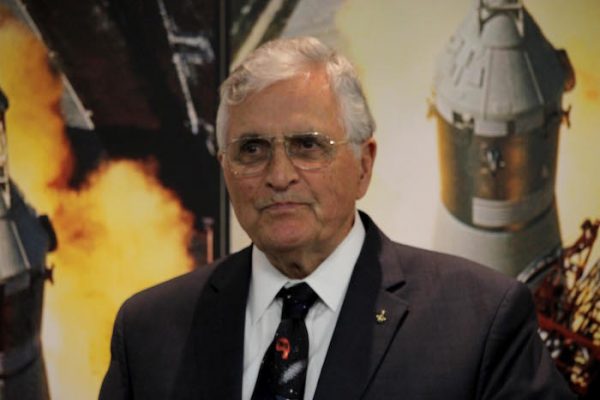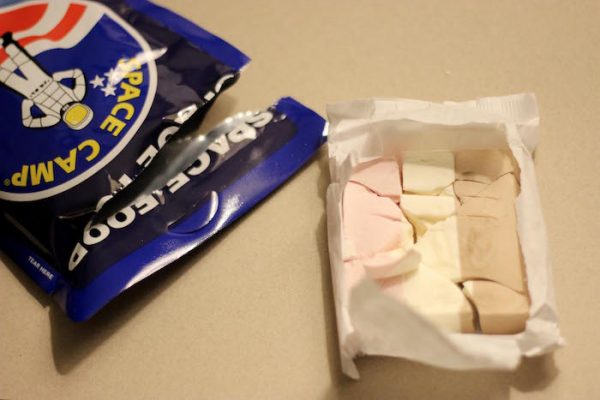I could have potentially destroyed our moon base and still had time to eat astronaut ice cream

Our space camp instructor promoted me to Chief Research Scientist during our Mars mission for what I like to think was my competency and professionalism as Capsule Communicator during the previous days mission.
I brought absolutely none of those qualities to our base on Phobos in a mock set-up designed for 9 to 11 year olds. After detailing rocks from the Mars' moons surface, I was tasked with conducting an experiment involving a chemical reaction inside a Ziploc baggie. Having spent most of my education nodding off through chemistry class, I was completely unfamiliar with my task. 
So I should have expected I would mix the wrong chemicals after carelessly picking up a different bottle. No explosion on our end, but instead of causing a reaction that would cool the bag and make it inflate, I created a substance now known as space gravy. Its unfortunate Sodium Bicarbonate and Sodium Polyacrylate look so similar.
Slightly less unfortunate was meeting my first astronaut. The final night of camp happened to feature a dinner to honor Apollo 17 astronaut Harrison Jack Schmitt 45 years after his mission.
Dr. Schmitt, 82, a former U.S. senator from New Mexico and a geologist, is the only scientist to add his footsteps to the surface of the moon. He also happens to be a climate change denier. 
Unfortunately, science at least in the United States has become biased to what governments want to do and thats not objective science, Schmitt said during a press conference before his dinner. Science is really the process of questioning what you think you know.
It seemed a bit hard to personally reconcile Schmitts incredible NASA and science background with his current stance on science and climate change. Im still unapologetically glad I had the opportunity to be in the same room as an Apollo astronaut.
Schmitt also says the U.S. Space Program should be focused on returning to the moon, then setting our adventure sights on Mars for exploration not terraforming it.
Its also a starkly different vision with what many other space experts are expecting from future missions. Television shows like National Geographics Mars are detailing a future a little over a decade away when the first colony will be thriving on the red planet.
We can [complete] the basic terraforming of Mars where we raise the temperature high enough so that theres flowing water on the surface at least in day time, said Stephen Petranek, author of How Well Live on Mars, during a press junket earlier in the day promoting the shows upcoming season.
To have an environment, with the exception of the fact that we cant breathe the air, but an environment which can be very similar to southern Canada. We can have that in 30 years. We can probably have it in 20 years. It depends how much money youre willing to spend.
Petranek also pointed to how Huntsvilles Space Camp has even become heavily focused on the Mars initiative in the last few years. Im not sure if I learned enough at Space Camp to decide what the future of U.S. and private space programs will be able to achieve and give a proper estimate. That didnt stop the camp from giving me an advanced space academy degree.
However, what I did learn is that astronaut ice cream is sold at the centers gift shop. I should have considered myself lucky when I couldnt find it at the cafeteria the previous day. 
Original Link: http://feeds.boingboing.net/~r/boingboing/iBag/~3/lCc8k4CE7pk/i-could-have-potentially-destr.html


